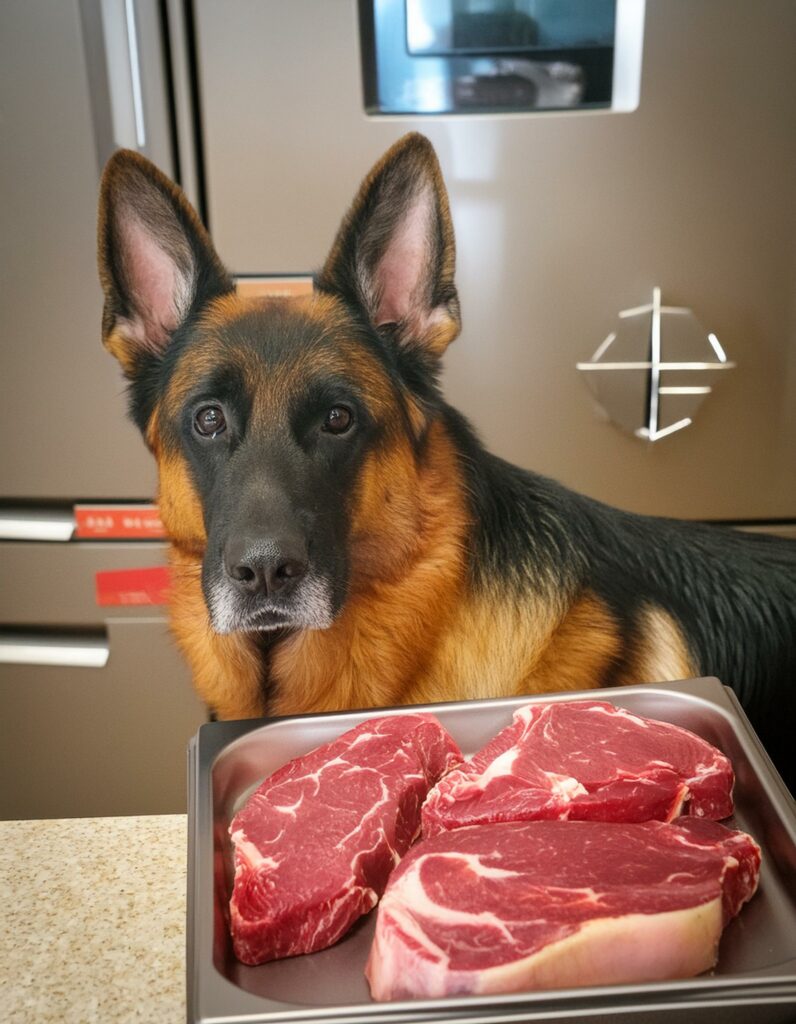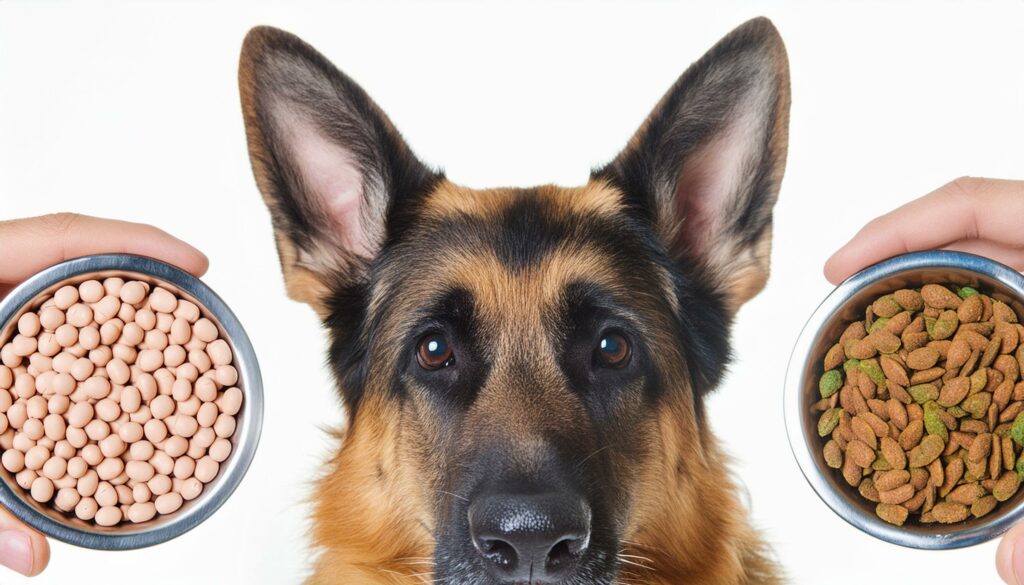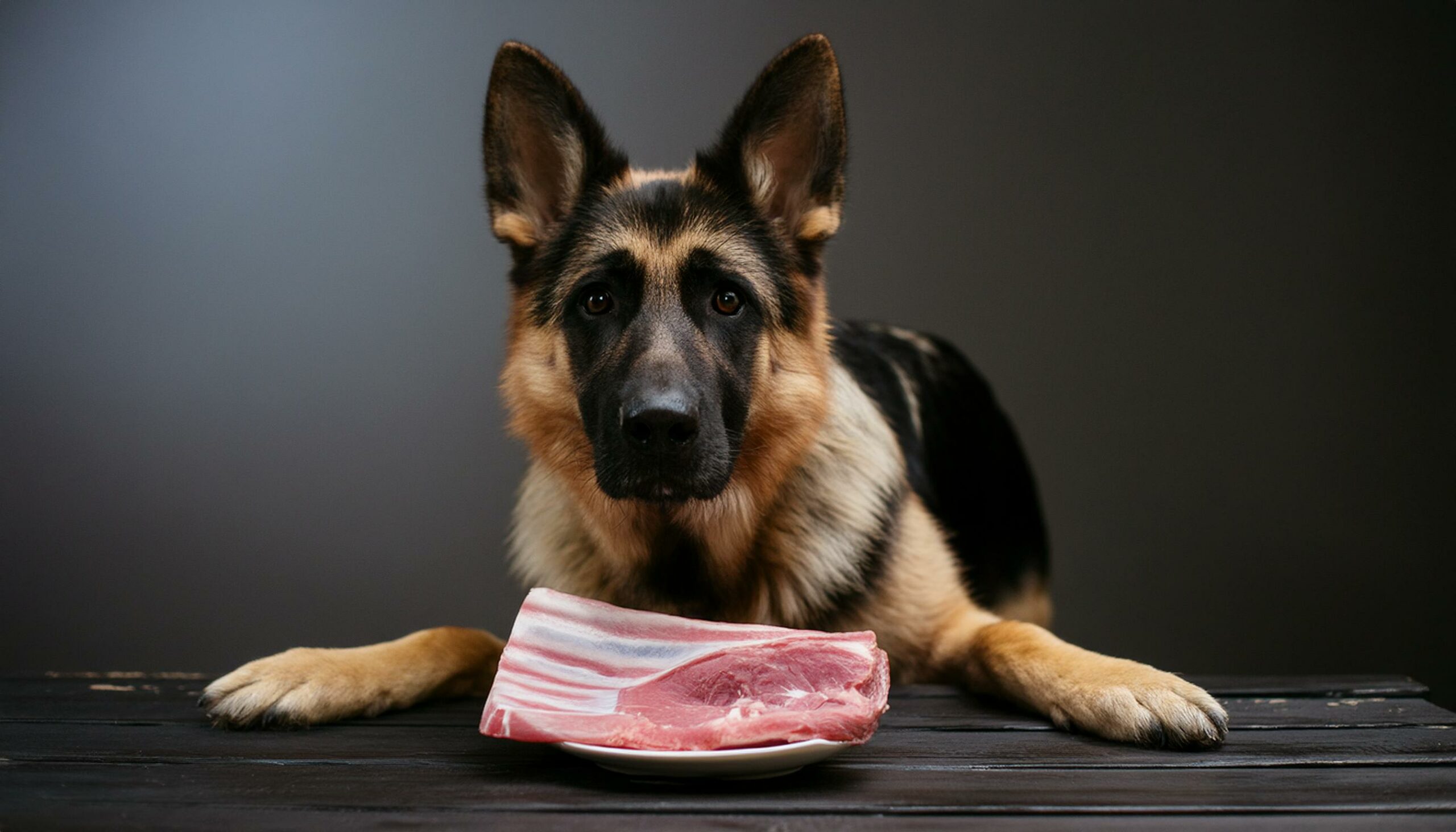German Shepherds are known for their intelligence, loyalty, and strength, making them one of the most popular dog breeds worldwide. As devoted pet owners, ensuring their well-being and health through proper nutrition is paramount. However, when considering introducing pork into their diet, questions about its suitability and potential effects arise.
Nutritional Needs of German Shepherds
Maintaining a balanced diet is crucial for German Shepherds to support their overall health and vitality. Like all dogs, they require a combination of proteins, carbohydrates, fats, vitamins, and minerals in appropriate proportions. Providing a nutritionally complete diet tailored to their specific needs is essential for their well-being.
Can German Shepherds Eat Pork?
The question of whether German Shepherds can safely consume pork is a common concern among pet owners. While pork itself is not inherently toxic to dogs, several factors must be considered before including it in their diet.
Nutritional Value of Pork

Pork is a rich source of protein, essential for muscle development and maintenance in dogs. Additionally, it contains various vitamins and minerals, including B vitamins, zinc, and phosphorus, which contribute to overall health. When properly prepared and served in moderation, pork can offer valuable nutritional benefits to German Shepherds.
Risks of Feeding Pork to German Shepherds
Despite its nutritional value, there are potential risks associated with feeding pork to German Shepherds. Some dogs may be allergic or sensitive to pork proteins, leading to adverse reactions such as digestive upset, skin irritation, or respiratory issues. Furthermore, pork can be high in fat, which, if consumed excessively, can contribute to obesity and related health problems.
Cooking Methods and Precautions
When feeding pork to German Shepherds, it’s crucial to use safe cooking methods and avoid adding harmful ingredients such as seasonings, sauces, or excessive salt, which can be harmful to dogs. Cooking pork thoroughly helps eliminate the risk of foodborne illnesses and ensures its safety for consumption.
Moderation and Portion Control
As with any food, moderation is key when incorporating pork into a German Shepherd’s diet. It’s essential to monitor their intake and avoid overfeeding, as excessive consumption can lead to digestive issues and weight gain. Consulting with a veterinarian can help determine appropriate serving sizes based on your dog’s age, weight, and activity level.
Alternatives to Pork

For German Shepherds with known sensitivities to pork or for owners who prefer to avoid it altogether, there are plenty of alternative protein sources available. Options such as chicken, turkey, beef, and fish can provide similar nutritional benefits without the risk of adverse reactions. Maintaining a varied diet ensures that dogs receive a wide range of essential nutrients.
Consulting with a Veterinarian
Before making significant changes to your German Shepherd’s diet, it’s essential to consult with a qualified veterinarian. They can offer personalized recommendations based on your dog’s individual needs, health status, and dietary preferences. A veterinarian can also help identify and manage any food allergies or intolerances your dog may have.
Understanding Your Dog’s Reaction
When introducing pork or any new food into your German Shepherd’s diet, it’s essential to monitor their reaction closely. Signs of intolerance or allergies may include gastrointestinal upset (such as vomiting or diarrhea), skin irritation, itching, or respiratory symptoms. If you notice any adverse reactions, discontinue feeding pork and consult with your veterinarian for further guidance.
Myths and Misconceptions
There are several myths and misconceptions surrounding the feeding of pork to dogs. While some people believe that pork is inherently harmful due to religious or cultural reasons, the truth is that it can be safely included in a German Shepherd’s diet when fed responsibly. By following proper preparation and serving guidelines, pork can be a nutritious addition to their meals.
Real-Life Experiences
Many German Shepherd owners have successfully included pork in their dog’s diet without any issues. However, it’s essential to recognize that every dog is unique, and what works for one may not work for another. Paying attention to your dog’s individual needs and reactions is key to providing them with a diet that supports their health and well-being.
Conclusion
In conclusion, pork can be a suitable protein source for German Shepherds when fed in moderation and prepared properly. While it offers valuable nutrients, it’s essential to consider your dog’s individual needs and potential sensitivities before incorporating it into their diet. Consulting with a veterinarian can provide valuable guidance and ensure that your German Shepherd receives a balanced and nutritious diet that supports their health and well-being.
FAQs (Frequently Asked Questions)
Can German Shepherds eat raw pork?
While some advocate for raw feeding, raw pork can contain harmful bacteria and parasites that pose a risk to dogs. It’s safer to cook pork thoroughly before feeding it to your German Shepherd.
Is pork fat harmful to German Shepherds?
Excessive consumption of pork fat can contribute to obesity and related health issues in German Shepherds. It’s best to trim excess fat and feed pork in moderation as part of a balanced diet.
Are there any benefits to feeding pork to German Shepherds?
Pork can provide valuable nutrients such as protein, vitamins, and minerals to German Shepherds. However, it’s essential to balance their diet with a variety of protein sources and consult with a veterinarian to ensure nutritional adequacy.
How can I tell if my German Shepherd is allergic to pork?
Signs of a pork allergy in German Shepherds may include gastrointestinal upset, skin irritation, itching, or respiratory symptoms. If you suspect an allergy, consult with your veterinarian for proper diagnosis and management.
Can I give pork bones to my German Shepherd as treats?
Pork bones can splinter and pose a choking hazard to German Shepherds. It’s best to avoid giving them pork bones and opt for safer chew toys or treats instead.
